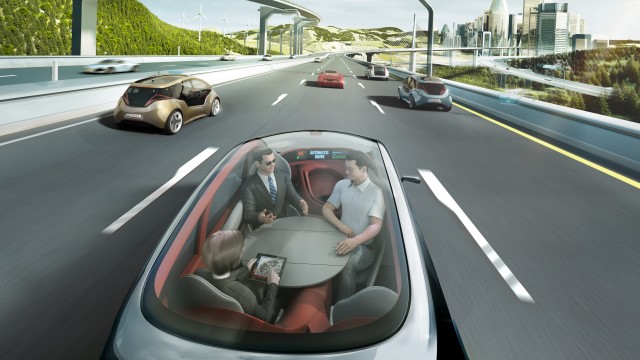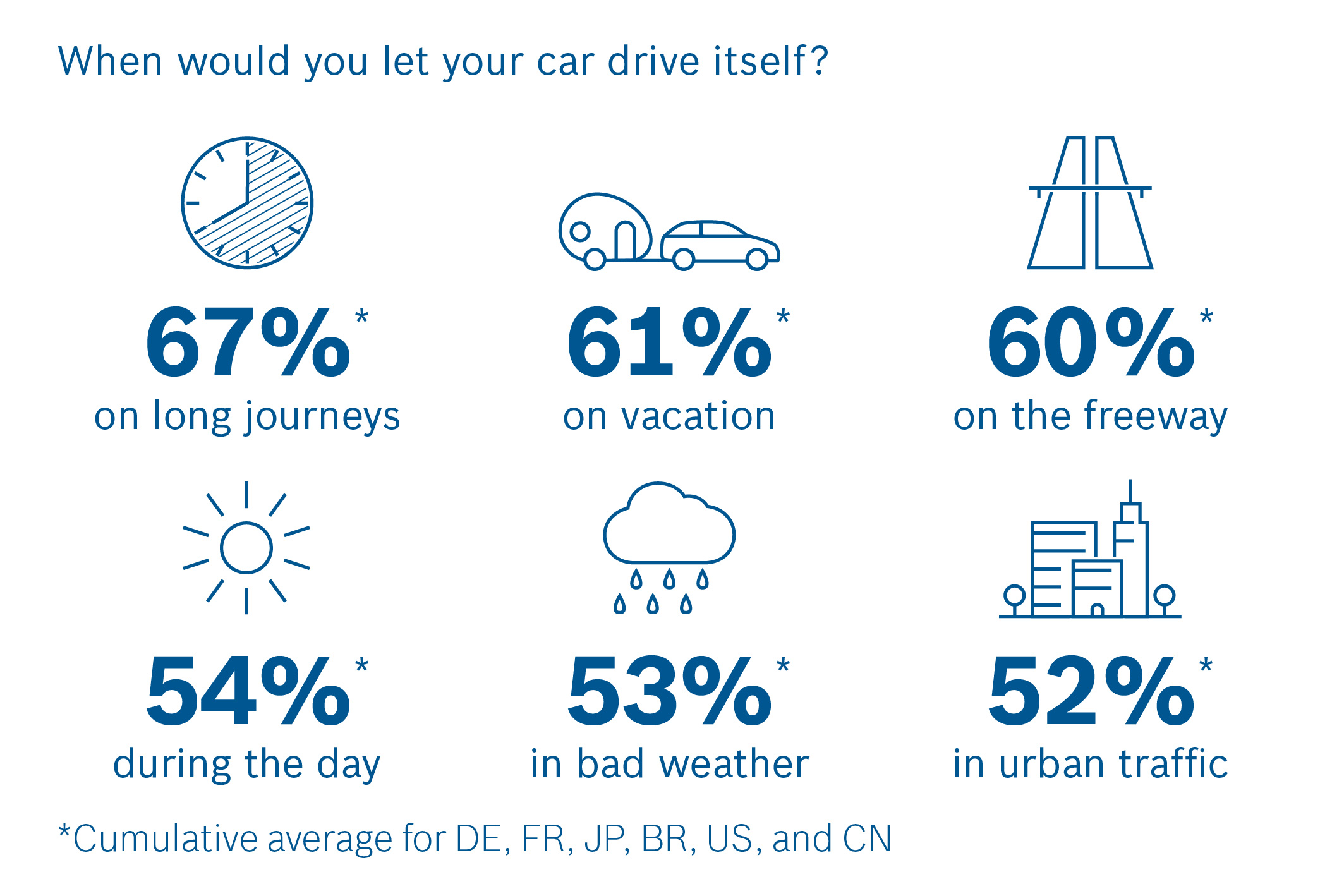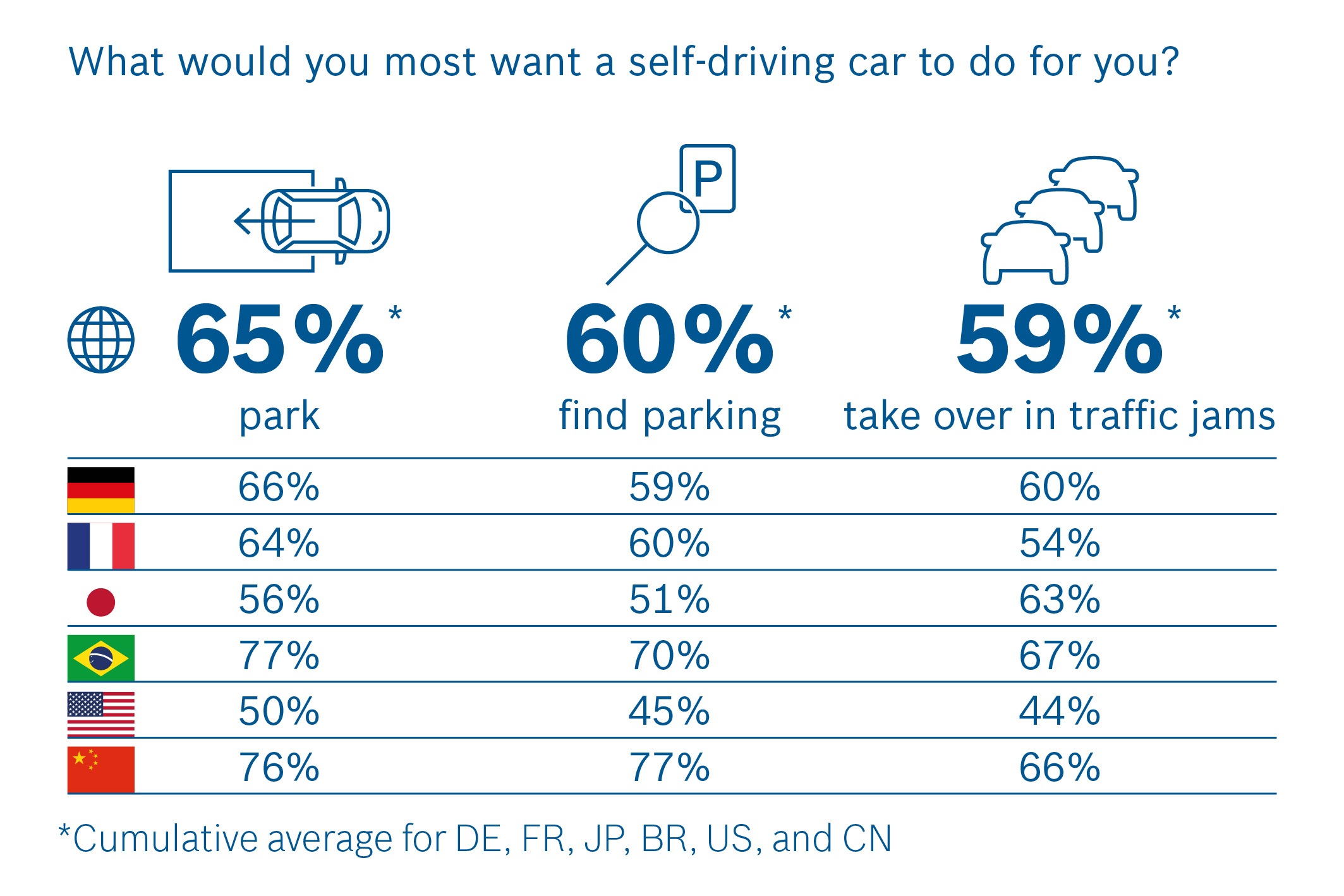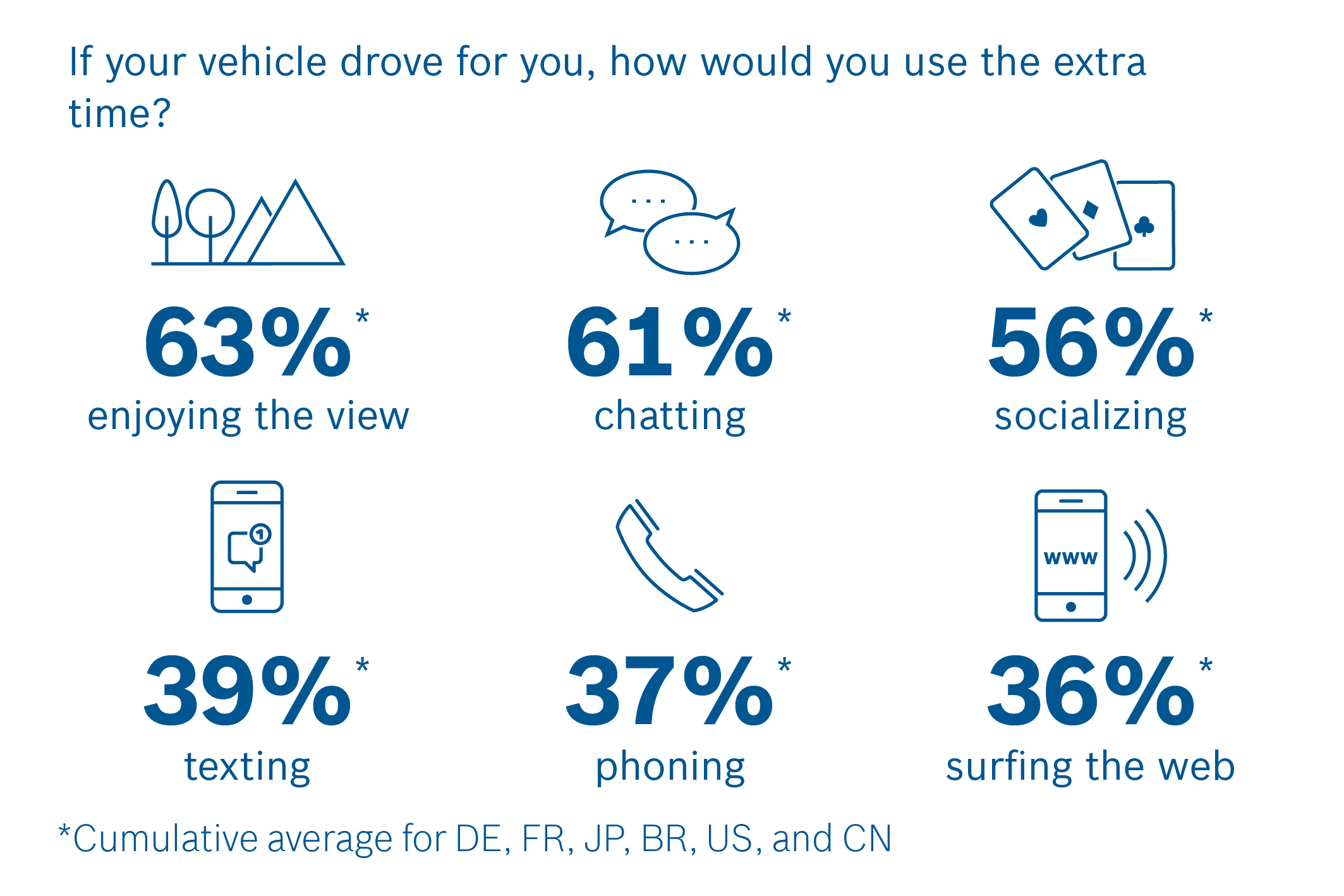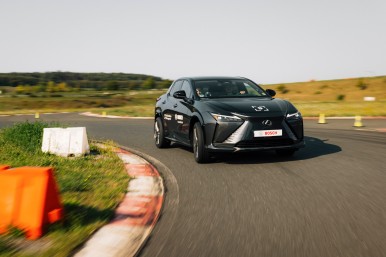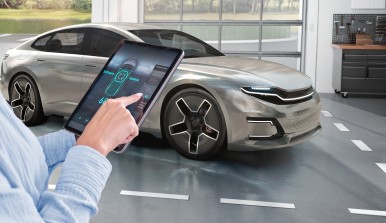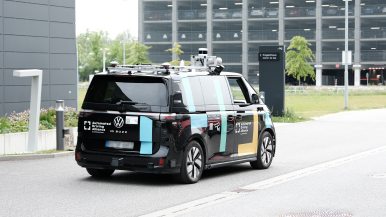Stuttgart, Germany – “Don’t tailgate.” “Don’t drive so fast.” Or: “You could have easily made that light.” Drivers often have to hear sentences like these from their passengers. But soon that could be a thing of the past. Automated driving turns drivers into passengers – and cars into drivers. In the future, cars will independently pilot themselves at the touch of a button whenever drivers want. In doing so, they will obey traffic laws and speed limits, which will make driving safer. Many respondents want a self-driving car to relieve them of their stressful driving duties. Drivers are particularly interested in handing control over to the car during parking or in traffic jams, according to a recent survey on behalf of Bosch in six countries (Brazil, China, Germany, France, Japan, and the U.S.). The majority of the drivers surveyed would use the time during which the car drives itself to look out the window, enjoy the scenery (63 percent), and talk to passengers (61 percent).
Survey design and methodology
For the survey on automated driving, Bosch asked roughly 6,000 licensed drivers in six countries: Brazil, China, Germany, France, Japan, and the U.S. Per country, 1,000 people aged 16 and up took part in the survey. Participants were selected on the basis of criteria defined by Bosch and Lightspeed Research.
Mobility is the largest Bosch Group business sector. It generated sales of 55.8 billion euros in 2024, and thus contributed around 62 percent of total sales. This makes the Bosch Group one of the leading mobility suppliers. Bosch Mobility pursues a vision of mobility that is safe, sustainable, and exciting. For its customers, the outcome is integrated mobility solutions. The business sector’s main areas of activity are electrification, software and services, semiconductors and sensors, vehicle computers, advanced driver assistance systems, systems for vehicle dynamics control, repair-shop concepts, as well as technology and services for the automotive aftermarket and fleets. Bosch is synonymous with important automotive innovations, such as electronic engine management, the ESP anti-skid system, and common-rail diesel technology.
The Bosch Group is a leading global supplier of technology and services. It employs roughly 418,000 associates worldwide (as of December 31, 2024). The company generated sales of 90.3 billion euros in 2024. Its operations are divided into four business sectors: Mobility, Industrial Technology, Consumer Goods, and Energy and Building Technology. With its business activities, the company aims to use technology to help shape universal trends such as automation, electrification, digitalization, connectivity, and an orientation to sustainability. In this context, Bosch’s broad diversification across regions and industries strengthens its innovativeness and robustness. Bosch uses its proven expertise in sensor technology, software, and services to offer customers cross-domain solutions from a single source. It also applies its expertise in connectivity and artificial intelligence in order to develop and manufacture user-friendly, sustainable products. With technology that is “Invented for life,” Bosch wants to help improve quality of life and conserve natural resources. The Bosch Group comprises Robert Bosch GmbH and its roughly 490 subsidiary and regional companies in over 60 countries. Including sales and service partners, Bosch’s global manufacturing, engineering, and sales network covers nearly every country in the world. Bosch’s innovative strength is key to the company’s further development. At 136 locations across the globe, Bosch employs some 87,000 associates in research and development.
Additional information is available online at www.bosch.com, www.bosch-press.com.
